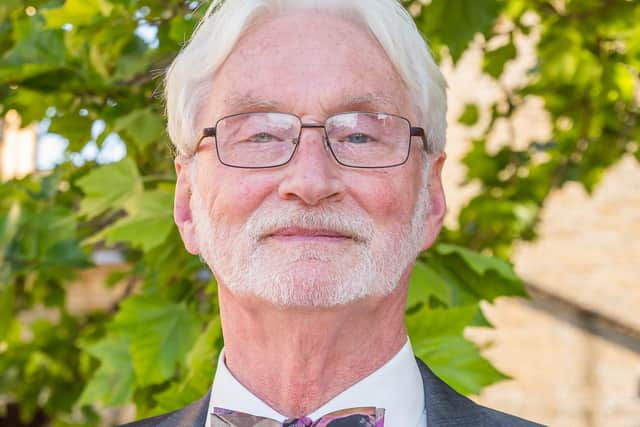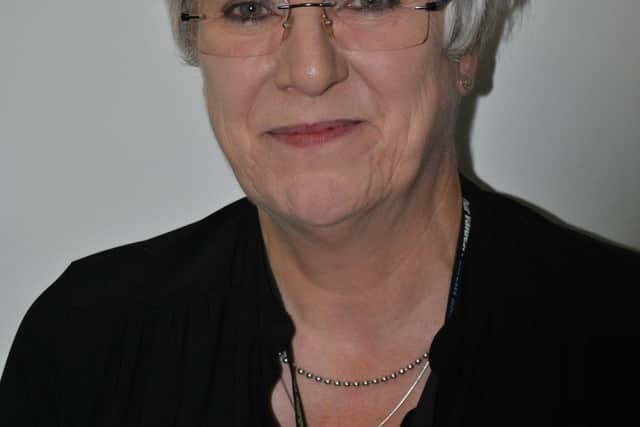Families felt 'powerless and isolated' as social care commissioning complaints broke down, claims Calderdale councillor
and live on Freeview channel 276
Scrutiny councillors heard members of Calderdale’s Asian community speak movingly about how they felt powerless, isolated and unable to voice their concerns over their loved ones’ treatment over issues including their diet.
Coun Faisal Shoukat criticised the failure of a complaints system which meant councillors were unable to scrutinise and pick up on the concerns.
Advertisement
Hide AdAdvertisement
Hide AdService users and their families had been threatened and frightened they would suffer adversely if they continued to make waves, he said.


Coun Shoukat (Lab, Park) said that when constituents approached him they felt powerless and that the complaints procedure failed them.
"They were at fear of having the deprivation of liberty of their loved ones being taken away from them if they spoke out any further. That is disgusting.”
After years of unresolved issues, serious disorder in protest was only avoided through the work of Nur e Sabil – a group of Muslim families coming together as advocates for their community – local councillors and the Council of Mosques in helping securing a major review of practices in the future, said Coun Shoukat.
“Nur e Sabil, local councillors and the Council of Mosques have tried their best to manage tensions and ensure this process happens without community tensions being raised,” he said.


Advertisement
Hide AdAdvertisement
Hide AdCoun Shoukat said he wanted it to become public knowledge that built-up frustration about some of the “harrowing” incidents could have had serious results.
“Had the Council of Mosques and women in our community not handled the messaging properly, we would have seen riots in this town,” he said.
Senior council and health officers accepted there had been failings and welcomed the report.
A cross-party group of councillors has now drawn up recommendations over how services are commissioned.


Advertisement
Hide AdAdvertisement
Hide AdThe council’s Cabinet have been asked by the council’s Adults, Health and Social Care Scrutiny Board to adopt these into policy.
Working party Chair, Coun Ashley Evans (Lib Dem, Warley) said the working party concluded council and NHS needed to use their considerable purchasing power to ensure services provided matched the needs of all Calderdale residents who used their services.
“We need to make sure that the cultural, religious and dietary needs of all service users are met – this work has focused on Muslim service users, but this requirement must also apply across the board,” he said.
The recommendations also include regular review by scrutiny councillors and with some independent input, Adult Services and the NHS reviewing care provision annually, recording the wishes and views of family in all service users’ care plans; and supporting families in dealings with the Court of Protection, said Coun Evans.


Advertisement
Hide AdAdvertisement
Hide AdThere was also a need for a more diverse workforce, and to review, improve and strengthen, including access to, complaints procedures.
Members of the scrutiny board also wanted to see whistleblowing procedures improved – the meeting heard a staff member saying she had to go public for her concerns to be heard.
Cabinet member for Adult Services and Wellbeing, Coun Josh Fenton-Glynn (Lab, Calder), said the recommendations gave meaningful actions, with some work already under way.
“It is absolutely genuine that we are sorry we have fallen short and we want to make sure that we don’t fall short again,” he said.
He said he had confidence in the social work staff and problems had been systemic rather than individual, although Coun Shoukat said he believed some had abused the system and should be reported.
The council’s director of Adult Services and Wellbeing, Cath Gormally, said there was a full commitment to making improvements, including nutrition requirements including halal and vegetarian diets being recognised in people’s support and care plans and offered as a basic standard, a much more effective complaints procedure and working much more closely with families.